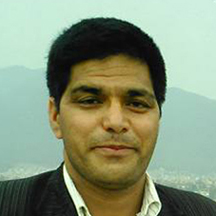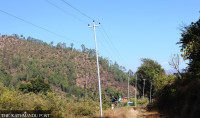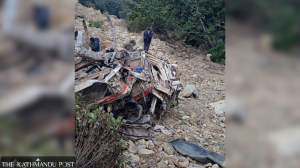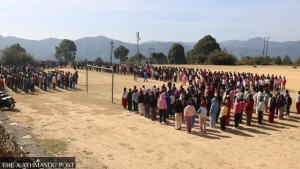Karnali Province
Young girls taking one step at a time to fight menstrual banishment
Although complete eradication of the practice seems like a far cry at the moment, various anti-Chhaupadi campaigns launched by young women have paved a way to fight against the practice.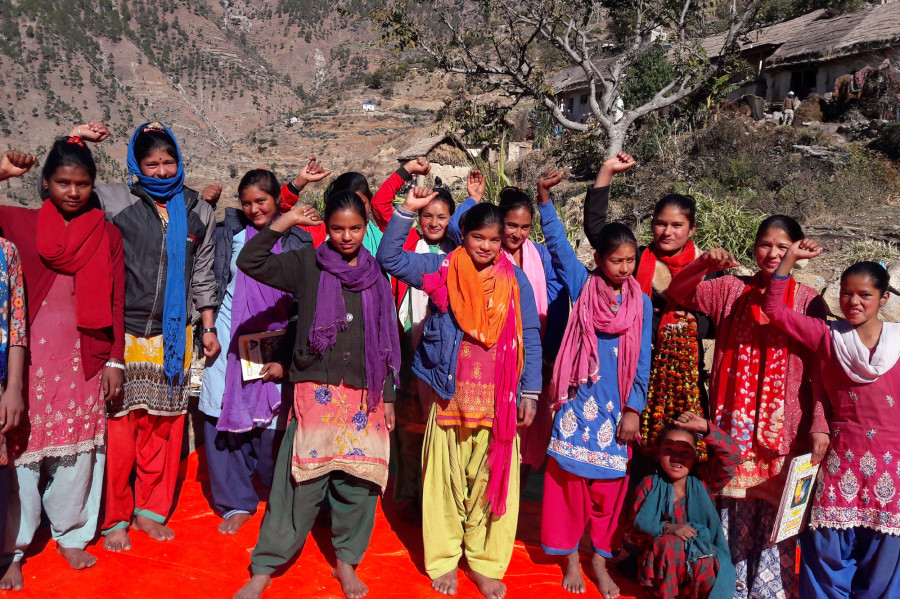
Tularam Pandey
Suchana Bhandari of Pulaha in Kalikot got her first period three years ago, at the age of 14. She informed her parents, who in turn told her that she must live in a ‘period hut’ outside the house for the duration of her period.
Since then, staying in a period hut once a month became a part of Bhandari’s life. She saw the same story play out across the lives of many young girls around her.
“We were suffering. None of us condoned this ill practice; we knew it was wrong. But it was an uphill task to make other people, including our parents, understand the futility of this practice,” said Bhandari.
In the last three years, Bhandari and her friends have been seeking ways to fight against menstrual banishment practised in Nepal, mostly in the hilly regions of the country.
Twenty young girls like Bhandari formed a group named Rupantaran Kishori Samuha to raise awareness on the negative impacts of Chhaupadi on women.
“We know that it is a deep-rooted practice and will take time to put an end to it,” said Bhandari. “We have to be patient.”
However, the practice firmly remains in place. Although Bhandari has not stayed in a period hut in the past year, she says that she still has a long way to go.
“My parents had forced me to stay in a Chhaupadi shed fearing social stigma. I refused and we met halfway. They now let me stay in the house, although my movements are restricted during my period,” said Bhandari, recalling the time her parents did not speak to her for two days for refusing to stay in a shed.
Women and girls in several settlements of Palata Rural Municipality are taking firm steps to abolish the practice of Chhaupadi. But they all believe that a lot of work remains to be done to achieve their goal.
Many menstruating girls and women in the district have begun to stay in their houses during their period, but they still face discrimination.
“We cannot enter the kitchen, puja room and are barred from eating certain food items. The discrimination continues,” said Nanda Kala Neupane of Khada. “Efforts are underway to end the age-long practice, but menstruating women and girls continue to face discrimination inside their house.”
Although the complete eradication of the practice seems like a far cry at the moment, various anti-Chhaupadi campaigns launched by teenage girls and young women have paved a way to fight against the practice. In Palata alone, there are a total of 27 such groups working relentlessly to put an end to Chhaupadi.
“We have launched a campaign named ‘shed to home’. The village women do not go to Chhau sheds anymore,” said Yashoda Bhandari, the secretary of an anti-chhaupadi group in Tallogaun. “This campaign may not bring marked changes in the current situation of women, but it sure is a step forward.”
Anti-Chhaupadi drives in the municipality are showing some positive results because of the involvement of young girls, says Manalal Jaisi, a social activist. “It’s imperative to have young girls at the forefront of these campaigns. These girls have been educating other girls and women on menstruation and how it’s a biological process and nothing to be ashamed of,” Jaisi said.
Meanwhile, the campaign against Chhaupadi has also helped minimise absenteeism in the municipality’s schools.
“Earlier, many girls remained absent when they were on their periods. But now, with the heightened awareness on menstruation among young girls, they do not feel the need to skip school,” said Krishna Bahadur Bam, a teacher at Saraswoti Secondary School in Dhaulagoha.




 18.12°C Kathmandu
18.12°C Kathmandu